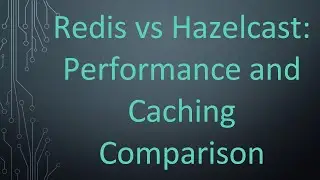Resolving the ORA-00937 Error in Oracle SQL: Group By with Multiple Conditions
Learn how to effectively utilize SQL's GROUP BY feature in Oracle with multiple conditions while avoiding common errors like `ORA-00937`.
---
This video is based on the question https://stackoverflow.com/q/65592530/ asked by the user 'Erdi Atalay' ( https://stackoverflow.com/u/10639207/ ) and on the answer https://stackoverflow.com/a/65593590/ provided by the user 'MT0' ( https://stackoverflow.com/u/1509264/ ) at 'Stack Overflow' website. Thanks to these great users and Stackexchange community for their contributions.
Visit these links for original content and any more details, such as alternate solutions, latest updates/developments on topic, comments, revision history etc. For example, the original title of the Question was: Oracle Group by multiple condition
Also, Content (except music) licensed under CC BY-SA https://meta.stackexchange.com/help/l...
The original Question post is licensed under the 'CC BY-SA 4.0' ( https://creativecommons.org/licenses/... ) license, and the original Answer post is licensed under the 'CC BY-SA 4.0' ( https://creativecommons.org/licenses/... ) license.
If anything seems off to you, please feel free to write me at vlogize [AT] gmail [DOT] com.
---
Resolving the ORA-00937 Error in Oracle SQL: Group By with Multiple Conditions
SQL queries that involve grouping data can sometimes lead to confusion and errors, especially when multiple conditions are in play. One such error is the infamous ORA-00937: not a single-group group function. In this guide, we'll explore how to construct a SQL query that groups data correctly, even when dealing with missing or incomplete information.
The Challenge
You have a query that groups data by type and calculates the total price. While it works for most entries, the complication arises when some rows lack a type name. Your goal is to ensure that any entries without a type are assigned to a default category, such as "type1", while still summing the prices accurately. Let's break down how to achieve this.
Your Initial Attempt
Here’s the original query that gives you the problem:
[[See Video to Reveal this Text or Code Snippet]]
This query throws an ORA-00937 error, indicating a problem with the aggregation due to grouping.
The Solution
To solve this issue, we need to adjust your query. Let's explore two different approaches depending on whether or not you require a join with another table.
1. Using COALESCE to Handle Missing Typenames
One effective method is to use the COALESCE function, which returns the first non-null value in a list. Here's a simplified version of your query:
[[See Video to Reveal this Text or Code Snippet]]
Explanation:
COALESCE(t.type, 'type1'): This ensures that if t.type is null, it defaults to "type1".
GROUP BY COALESCE(t.type, 'type1'): The grouping now accounts for the modified type, preventing the aggregation issues that led to the error.
2. Using a Join with Conditions
If you're required to incorporate another table in your query, you should use a proper join. Here's how you can do this with an ANSI join syntax:
[[See Video to Reveal this Text or Code Snippet]]
Explanation:
LEFT OUTER JOIN: This ensures you still get all records from table1, even if there’s no match in table2.
The CASE statement: Assigns the type dynamically based on the condition regarding k.invoice_no.
GROUP BY: Mirrors the SELECT statement's logic, allowing for proper aggregation.
Conclusion
By utilizing SQL's COALESCE function and proper GROUP BY clauses, you can avoid common pitfalls like the ORA-00937 error. These adjustments ensure your SQL queries can handle default values and aggregate data accurately, ultimately leading to clearer insights from your datasets.
Make sure to adapt these queries according to your actual table structures and requirements. Happy querying!

![Vakabular Sample Pack Vol. 1 Demo [Tech & Prog]](https://images.mixrolikus.cc/video/pHfyFVMnAnI)





























